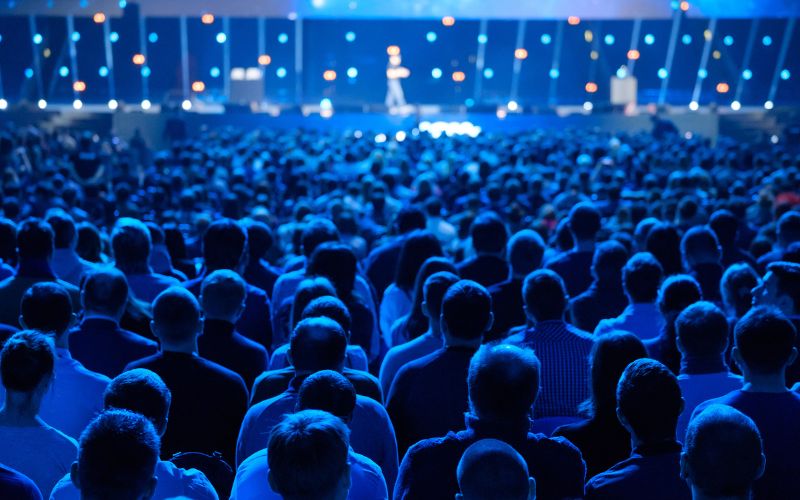
- Details
- By Levi Rickert
Opinion. Last week, three tribal leaders penned an open letter to presidential candidates, debate moderators, consultants, political commentators, and the media to push for Native American rights to be part of the upcoming presidential debate on Sept. 10 in Philadelphia and the vice presidential debate on Oct. 1 in New York City.
Tribal leaders Coquille Indian Tribe Chair Brenda Meade; Tunica-Biloxi Tribe of Louisiana Chairman Marshall Pierite; and Confederated Tribes of Coos, Lower Umpqua and Siuslaw Indians Chair Brad Kneaper wrote that millions of Americans are tribal citizens who grapple with centuries of disastrous policies designed to stamp out our people and way of life.
“We are part of the fabric of America, but the fight for recognition and respect is ongoing, with new battles for tribal sovereignty playing out in the Supreme Court, in Congress, and in statehouses around the country,” they wrote. “We are teachers, doctors, lawyers, and business owners. We have soared high in government and are governors, cabinet secretaries, and members of Congress. We have families whose futures we must protect.”
The letter cites tribal sovereignty — which affords a unique government-to-government relationship between tribal nations and the United States government — and emphasizes the need for presidents to understand Native American issues.
American Indian and Alaska Native issues should not be an afterthought to national issues for presidential candidates.
The letter asks that the candidates address the following four issues on the debate stage:
- How they will respect and uphold congressional acts and treaties
- How they will prevent disruptive lobbying and political influence from restricting the rights of Indian Country
- How the federal government will work with tribal leaders to meet critical needs in health, elder care, education and housing
- How they will protect natural resources and tribal lands for generations to come
In polls conducted by Native News Online, the most important issues among Native Americans are the protection of sacred sites, tribal water settlement rights, tribal sovereignty, Missing and Murdered Indigenous Relatives (MMIR), and health equity.
Polling shows other areas of concern among Native Americans are the economy, social security and the environment.
We know that the Native vote matters. There are at least seven states, including Arizona, North Carolina, Michigan, Minnesota, Nevada, and Wisconsin where the Native vote can be the tipping point in the presidential election.
Native Americans are not the only racial or ethnic group concerned about the lack of representation on the debate stage.
Last week, Native News Online published an op-ed written by the National Association of Hispanic Journalists that expressed concern about the lack of journalists of color moderating the presidential debates this year.
“Having a variety of backgrounds represented results in higher-quality journalism. The perspectives and experiences of journalists of color can ensure they pose questions that resonate with broader audiences. Instead, network and cable news networks are implicitly signaling that when the stakes are highest, white journalists are most likely to get the call,” the National Association of Hispanic Journalists said.
“Journalists of color don’t just pose good questions, they model participation in democracy for millions of young people who see them on the screen, people whose votes the candidates are working to earn. Asians and Latinos are the fastest-growing ethnic groups in America,” the op-ed continues.
To be fair, on September 10, ABC’s Linsey Davis, who is Black, will co-moderate the debate with fellow ABC anchor David Muir.
But, it is not enough. The profile of the American population is changing. By 2050, the demographics of the United States will have shifted to people of color being the majority. Currently, 58.9 percent of the country is white and not Hispanic. By 2050, whites will be in the minority.
Citing these numbers is not race-baiting, but simply a statement of fact.
It is time for people of color to have a voice in the democratic election system of this country. Certainly, the presidential debates are part of the process.
Thayék gde nwéndëmen - We are all related.
More Stories Like This
The SAVE America Act Threatens Native Voting Rights — We Must Fight BackThe Presidential Election of 1789
Cherokee Nation: Telling the Full Story During Black History Month
Jesse Jackson Changed Politics for the Better
Native News Online at 15: Humble Beginnings, Unwavering Mission
Help us defend tribal sovereignty.
At Native News Online, our mission is rooted in telling the stories that strengthen sovereignty and uplift Indigenous voices — not just at year’s end, but every single day.
Because of your generosity last year, we were able to keep our reporters on the ground in tribal communities, at national gatherings and in the halls of Congress — covering the issues that matter most to Indian Country: sovereignty, culture, education, health and economic opportunity.
That support sustained us through a tough year in 2025. Now, as we look to the year ahead, we need your help right now to ensure warrior journalism remains strong — reporting that defends tribal sovereignty, amplifies Native truth, and holds power accountable.
 The stakes couldn't be higher. Your support keeps Native voices heard, Native stories told and Native sovereignty defended.
The stakes couldn't be higher. Your support keeps Native voices heard, Native stories told and Native sovereignty defended.
Stand with Warrior Journalism today.
Levi Rickert (Potawatomi), Editor & Publisher


